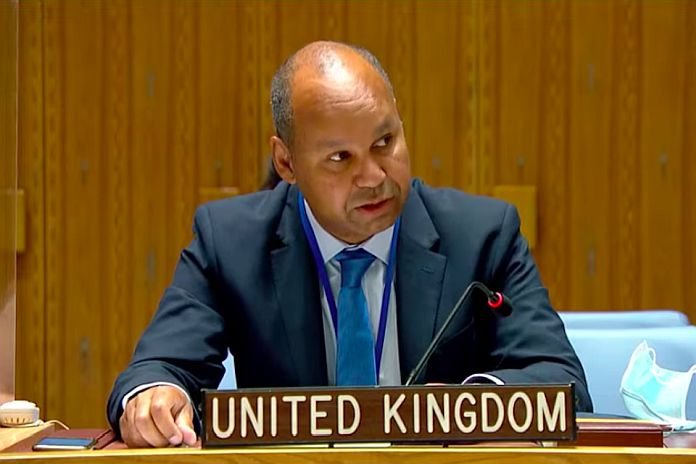By Ambassador James Kariuki
The UN Security Council has a unique responsibility for the maintenance of international peace and security. It is right that we make full and judicious use of every tool at our disposal in the pursuit of this goal. Targeted sanctions are one such tool – set out in the Charter, as our briefers said [today], they can play an important role as part of a comprehensive approach alongside diplomacy, peacebuilding and peacekeeping.
The value of sanctions has been proven. In Angola, Côte d’Ivoire, Liberia, and Sierra Leone they helped end conflict and support the transition to peace and democracy, following which sanctions were duly lifted. In the Central African Republic, they have improved the practices of a mining company. In Somalia, the arms embargo has enabled the seizure of thousands of ammunition rounds, anti-tank guided missiles and sniper rifles reportedly intended for Al-Shabaab.
Sanctions are an important means of countering the threat of transnational terrorism and preventing the proliferation of weapons of mass destruction. The Council is deploying them to constrain the activities of some of the world’s worst terrorists under the 1267 sanctions regime. We call on all parties to implement fully the sanctions this Council has agreed.
Any use of sanctions has to take account of humanitarian factors. The UK was one of the top five humanitarian donors globally in 2021. We champion International Humanitarian Law and humanitarian access in conflict and crisis situations.
The United Kingdom is committed to minimising any unintended consequences of sanctions, including on the delivery of humanitarian assistance. To achieve this, we advocate for carefully targeted sanctions, aimed at specific goals, as part of a comprehensive approach to conflict resolution. We support a range of humanitarian exceptions and licensing grounds in the application of sanctions.
For example, and it was mentioned by Under-Secretary Griffiths [today], we welcomed the unanimous support for the recent adoption of the UN Afghanistan humanitarian exemption, which was a good example of how sanctions regimes can be tailored to address any unintended consequences as they emerge, and ensure they do not hinder the delivery of urgently needed humanitarian assistance.
And domestically, we have a dialogue with banks and humanitarian actors in the Tri-Sector Group to find legal, safe and transparent ways to ensure that humanitarian aid reaches its intended beneficiaries and is not disrupted by sanctions.
The United Kingdom believes sanctions are most effective when adopted multilaterally. But where collective UN action is blocked, the UK is prepared to act with allies and partners, or unilaterally, to apply sanctions aimed at providing deterrence and accountability for the most severe behaviours such as gross human rights violations or abuses. For example, the al-Kaniyat militia responsible for the torture and murder of civilians in Libya. For this reason, the UK has its own legally robust targeted sanctions regime that we seek to use as part of a broad international response.
Let us not forget that conflict, violence and economic mismanagement are the main triggers of humanitarian crises. Sanctions are an important tool of the Council to help change the behaviour of regimes or individuals responsible for those conflicts, and to help us fulfil our collective responsibility to maintain international peace and security.






